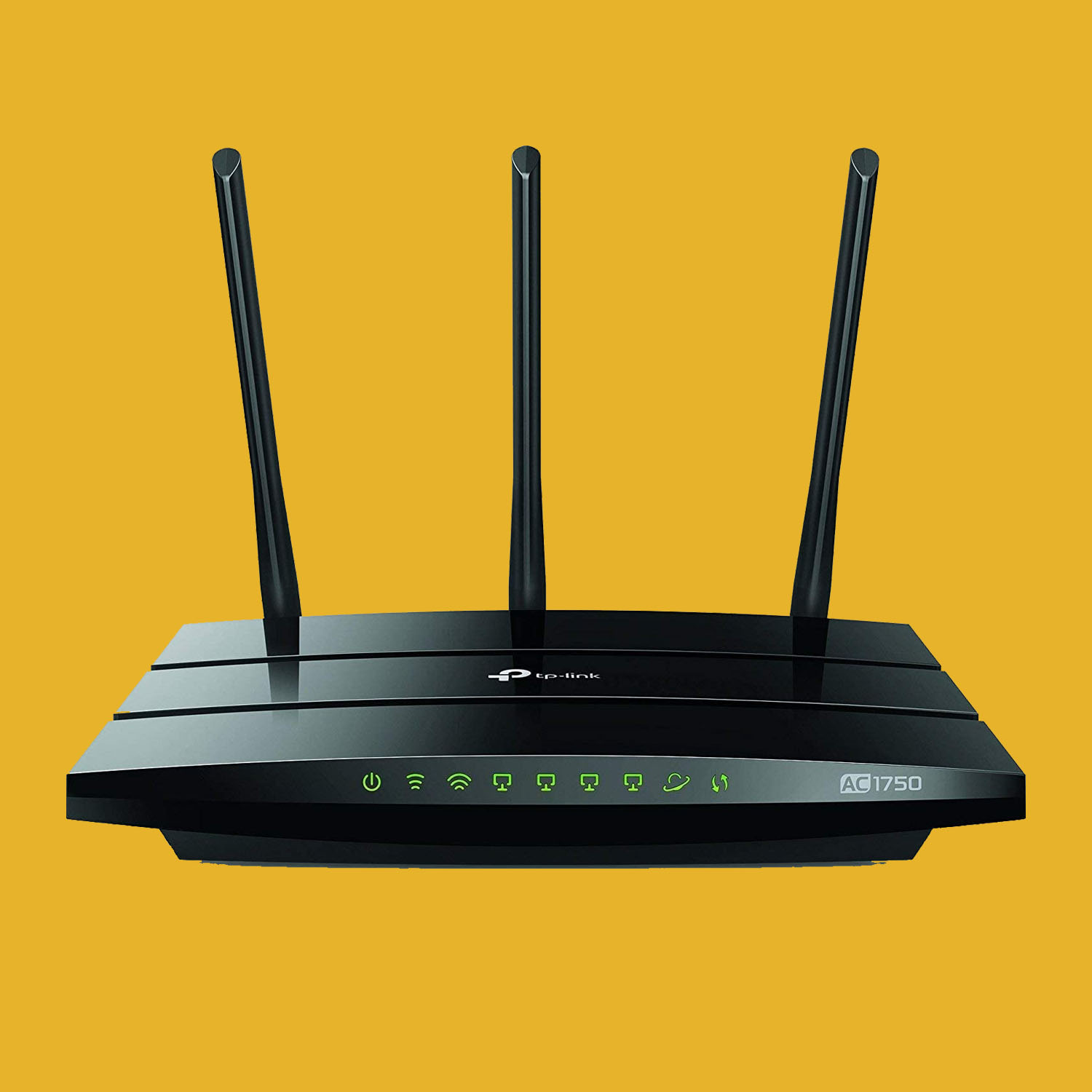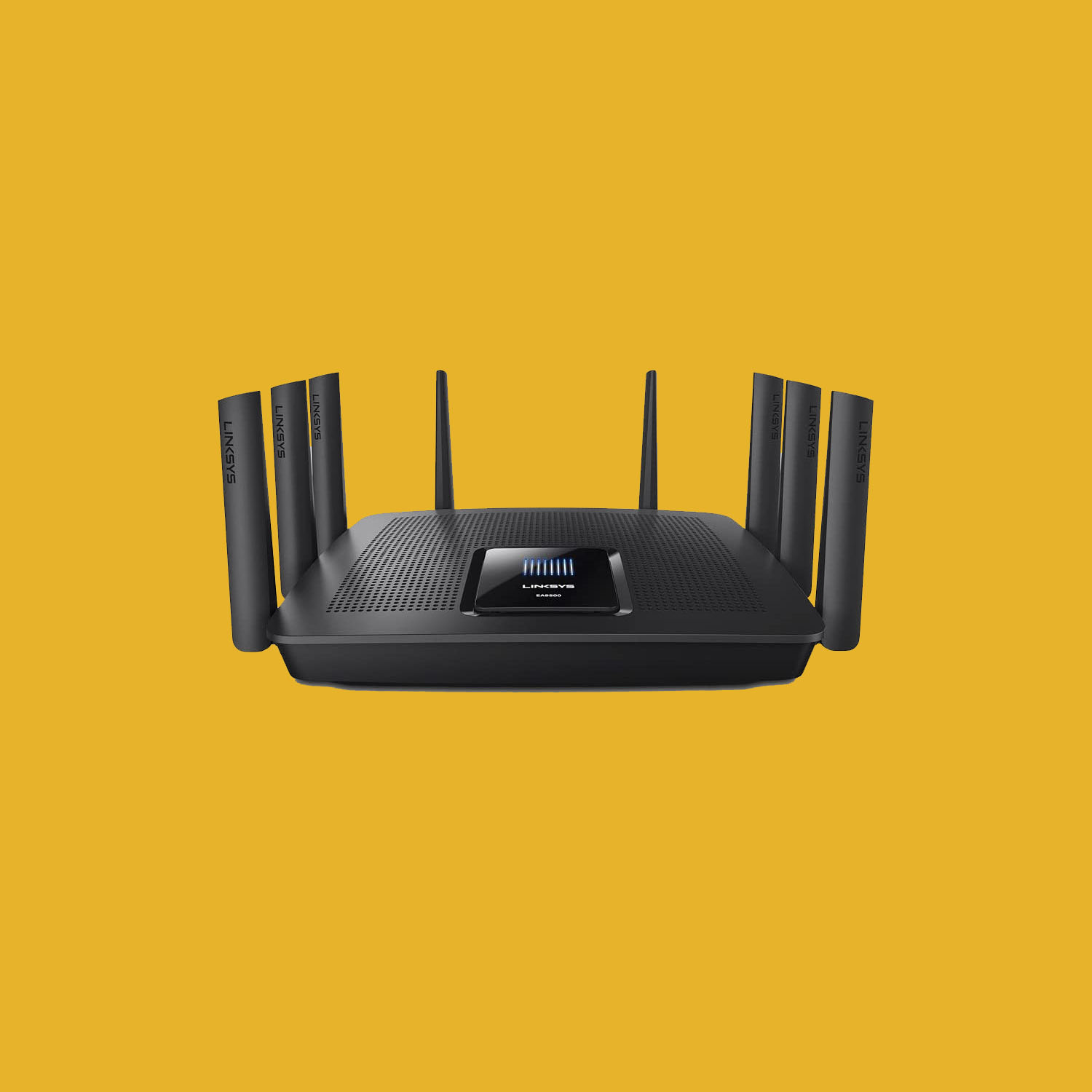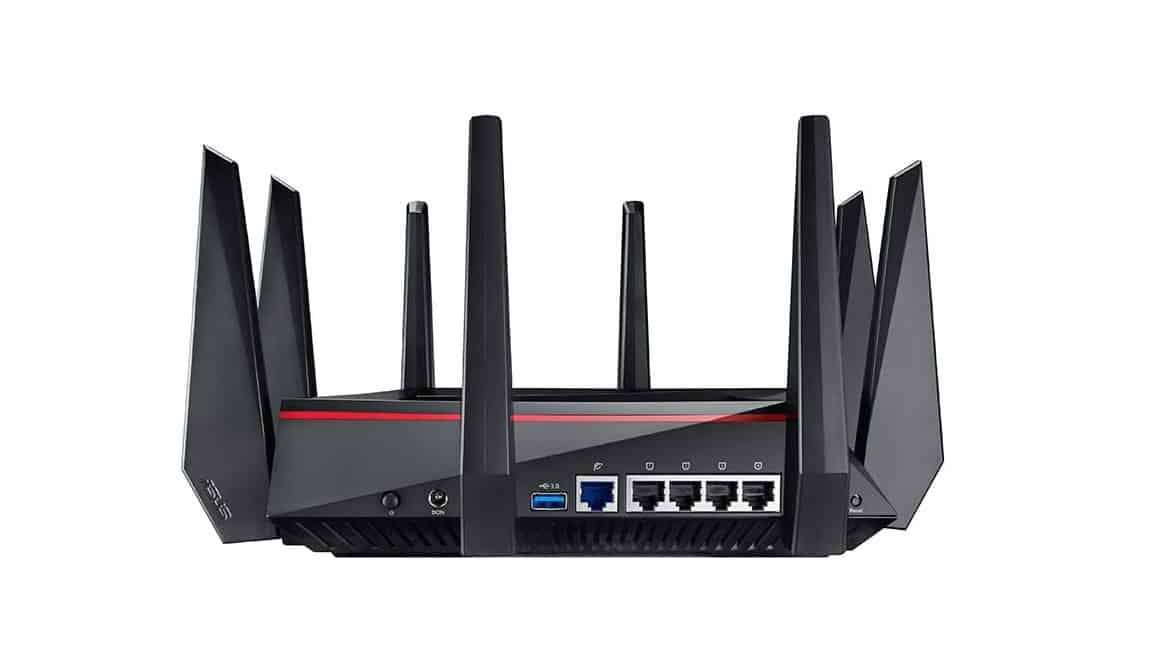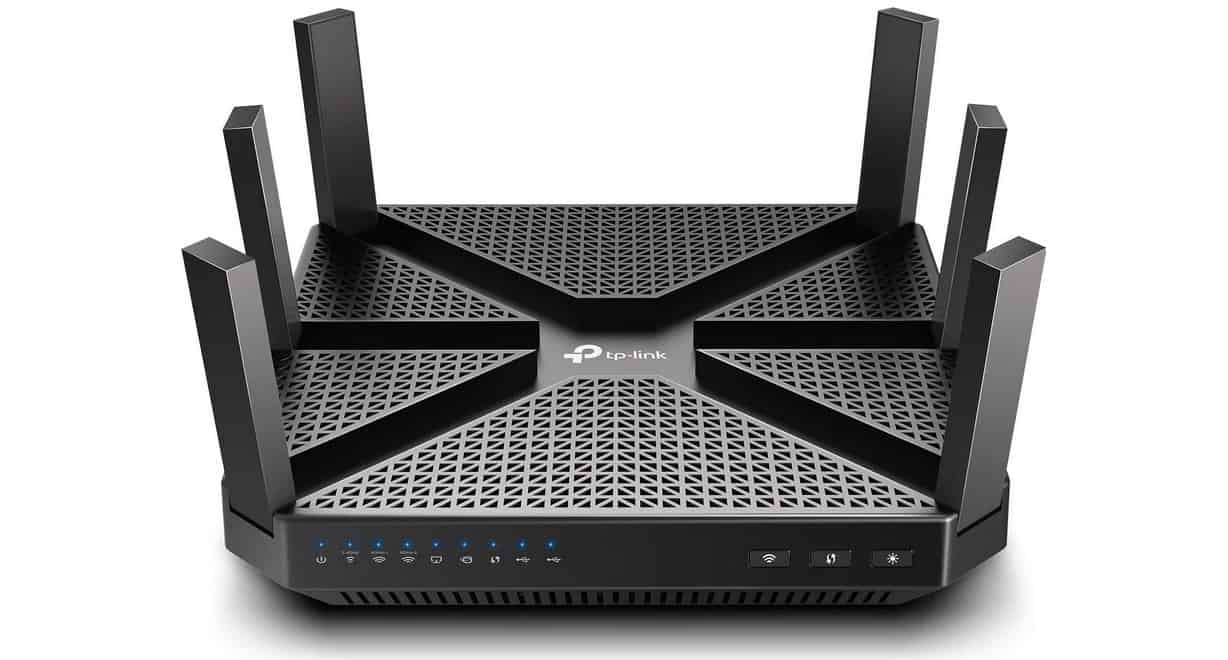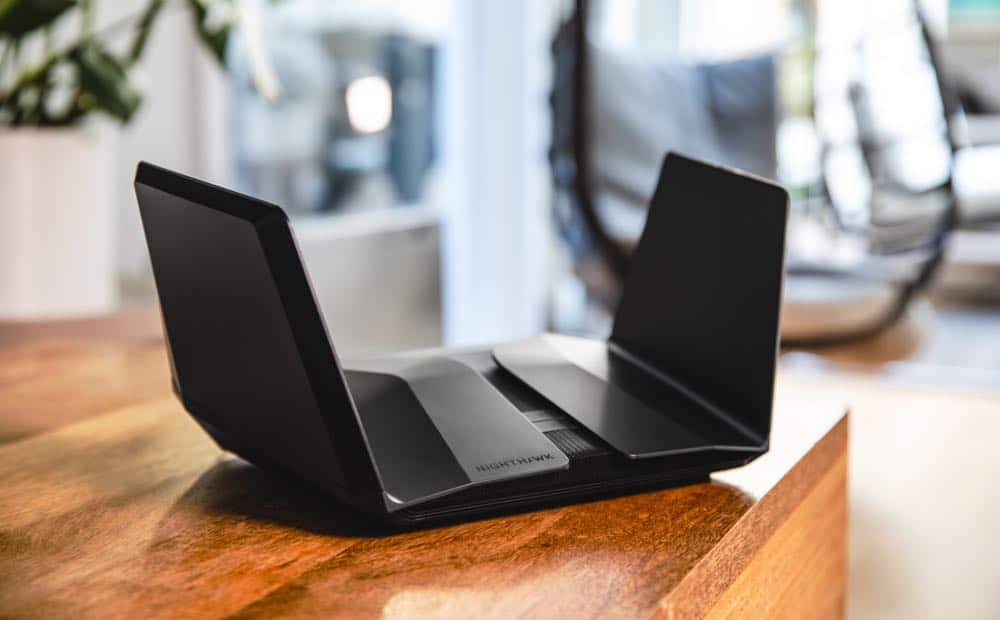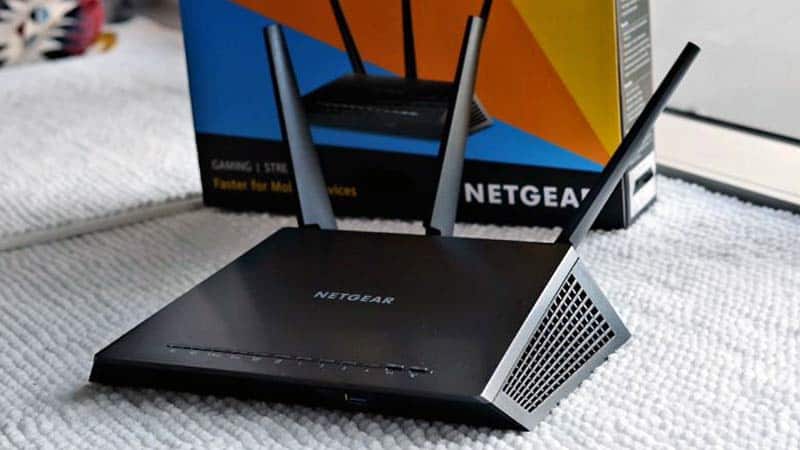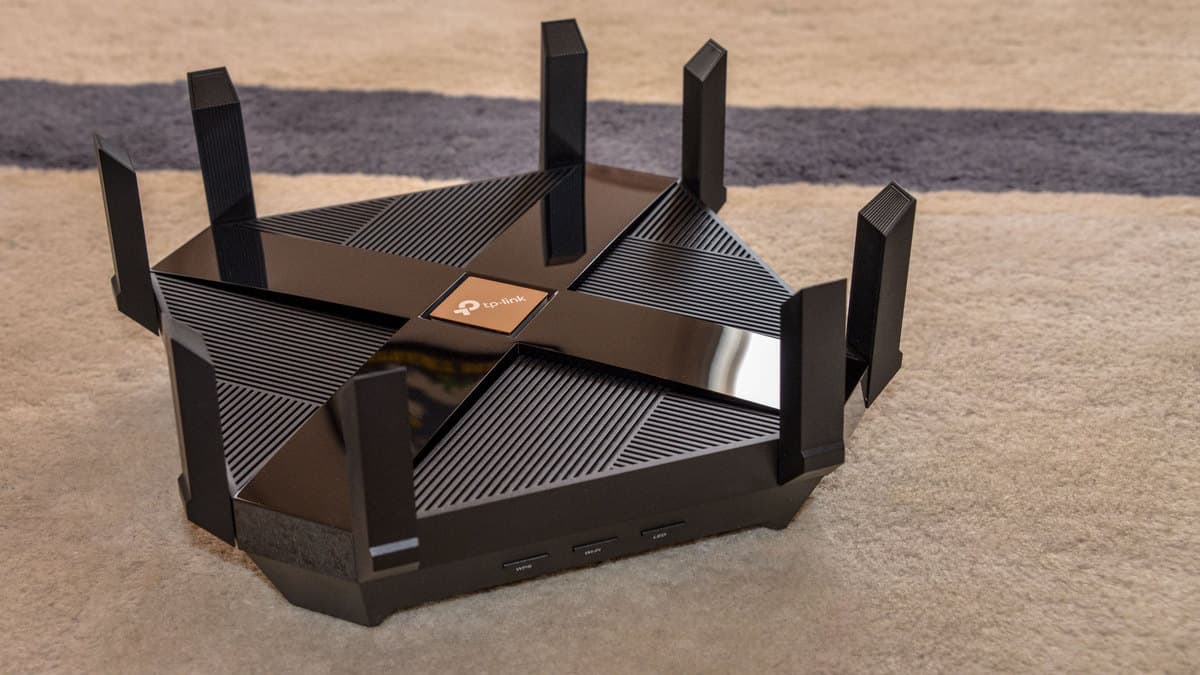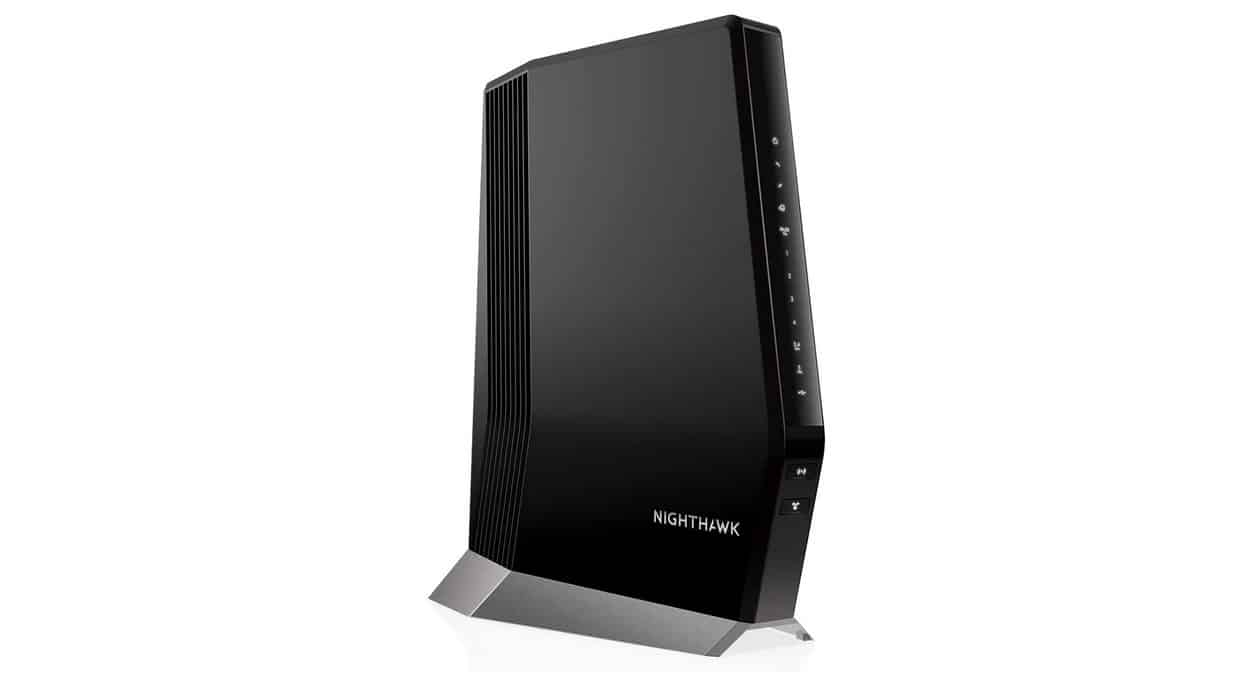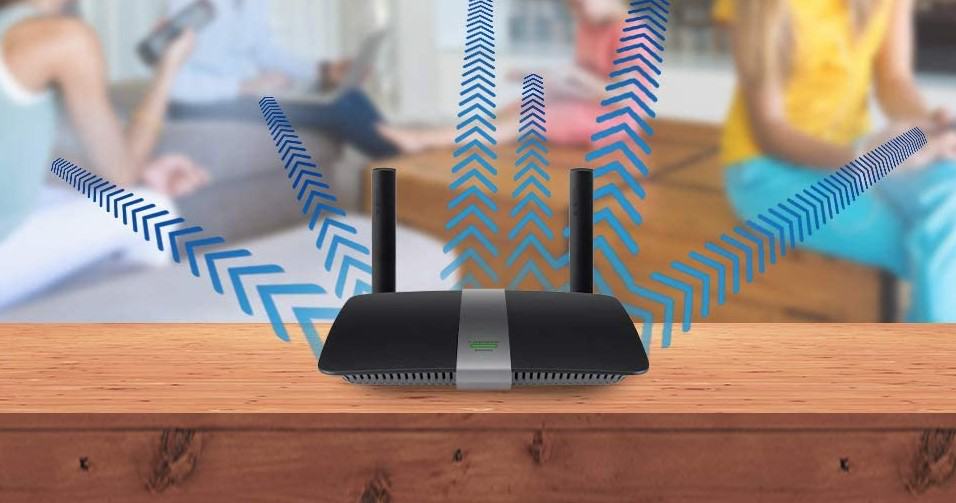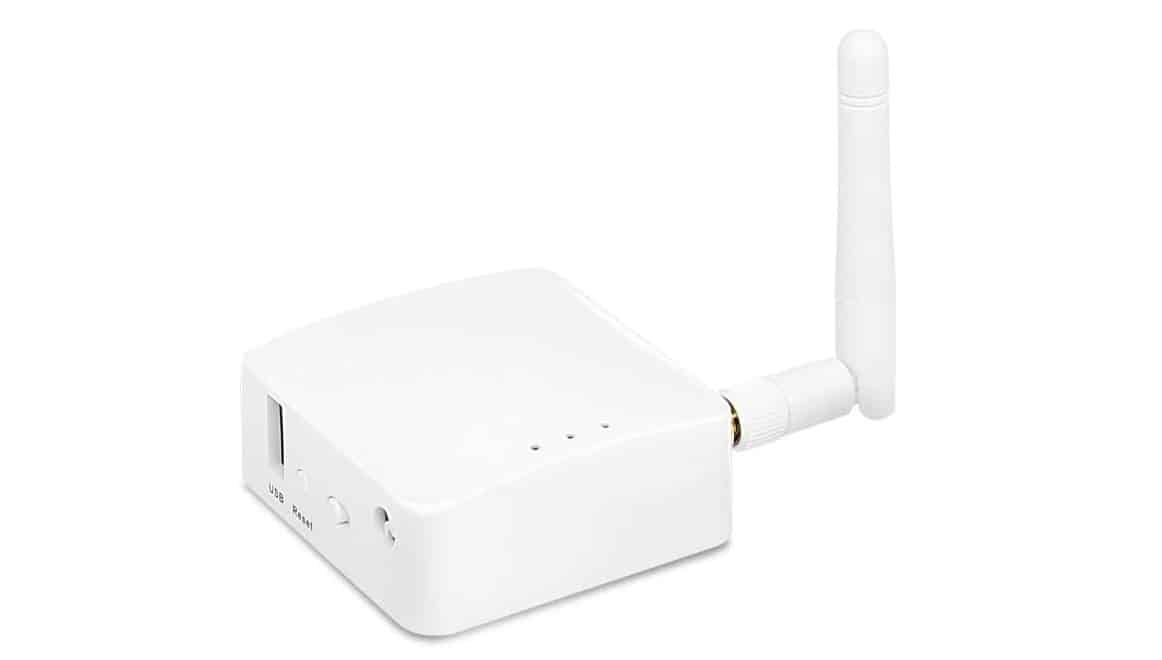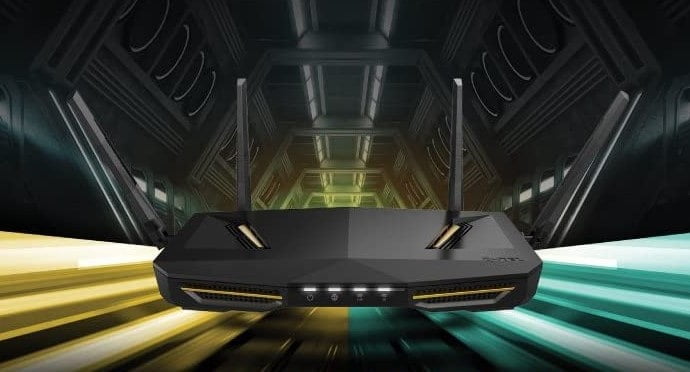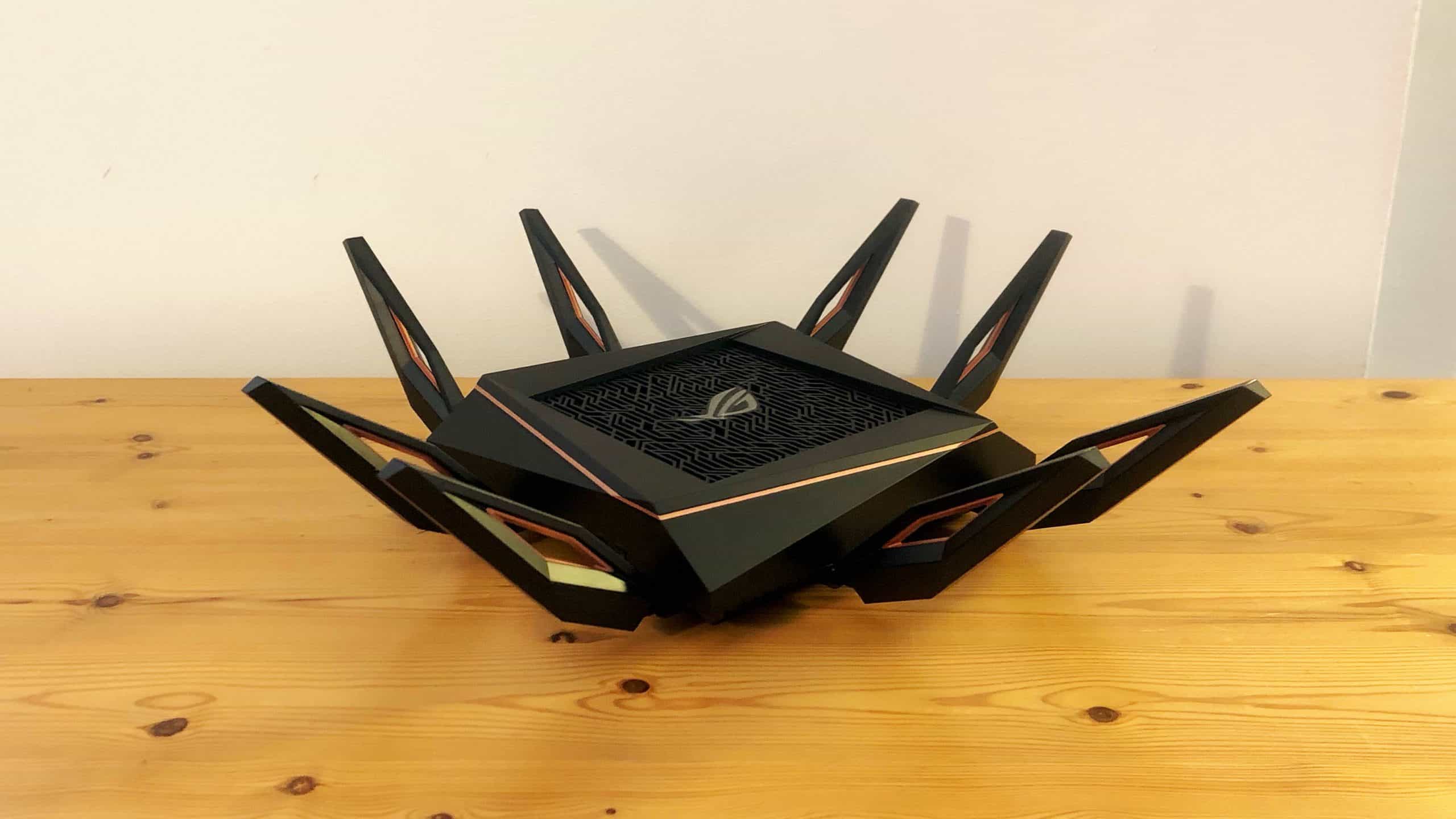What features make the best router for gigabit internet? The latest ultra-high-speed broadband needs the fastest router to keep up, so it starts with faster speeds. To make the most of your Gigabit internet connection, you’ll want a powerful router with at least 1000Mbps connection speeds. Next, it should offer at least dual-band wireless and offer enough bandwidth for all your connected devices.
With the right cable or fiber-optic service, you can get download speeds of 1000Mbps or more, but you’ll need an advanced router to make the most of your internet service providers’ high-speed infrastructure. If you work from home and need a fast connection for multi-user video conferences, data transfers, or video streaming, the best 1Gb router can help optimize your productivity. A router with Wi-Fi 6 capability and the extra bandwidth from the 6GHz band can allow for a faster workflow with simultaneous uploads and streaming.
Keep reading to learn more about routers for gigabit internet and how to choose the best router for your internet speeds.
Top Router for Gigabit Internet
#1 Archer A7 TP-Link AC1750 Smart WiFi Router
Award: TOP PICK
WHY WE LIKE IT: It is great for users who value stable connectivity and voice control. It comes in a compact design and has long range for good coverage.
- Great coverage
- Easy to setup
- Support for seamless 4K streaming and gaming
- Does not include a TP-Link Homecare Subscription
The TP-Link AC1750 takes connectivity and control to the next level with its support for voice control through Amazon Alexa. The router has been awarded the JD Power award twice for ranking highest in customer satisfaction, and it also comes with three external antennas for an extended range. It offers up to 4 Gigabit LAN ports and a USB port that is great for accessing and sharing USB drive content. The router also works with all the popular internet services and has a data transfer rate of up to 1750 Megabits per second. Its only drawback is the lack of a TP-Link Homecare Subscription.
Managing this router is also pretty easy, especially for users who opt to download the TP-Link Tether app, and with up to 2500 Sq ft of great coverage, users will be able to enjoy great range throughout their house. The router guarantees a stable connection for up to 50 devices and is ideal for 4K streaming and competitive gaming. Owners will also be able to manage access by children, and since it also comes with built-in access to VPN servers, users will be able to encrypt their connection.
#2 Speedefy K7 AC2100 Smart WiFi Router
Award: HONORABLE MENTION
WHY WE LIKE IT: It is easily manageable through its app and can handle up to 25 simultaneous connections. It also has a dual-core CPU for efficient running.
- Dual core CPU for more efficient running
- Speedify app allows for easy remote management
- Long range coverage
- No support for WiFi 6
This Speedify K7 WiFi router comes with a dual-core CPU for more efficient functioning and a total of 7 different external antennas for a powerful signal. It has a high data transfer rate of up to 2100 Megabytes per second and is also very easy to install. The WiFi 5 router can handle up to 25 simultaneous connections, and since it comes with a dual-core CPU, it is less likely to overheat when used. With WiFi coverage of up to 2500 Sq ft, it delivers a solid and reliable connection throughout the house or office. However, it does not have support for WiFi 6.
The K7 router comes with up to 4 different Ethernet ports and has dual-band frequency support for either 2.4Ghz or 5Ghz. For those who intend to share their network connection with kids, the router also comes with features such as parental control and allows for remote management through the Speedify app. For those who would like to log in through a web client, the router’s user interface is very easy to navigate and has most of the essential features that most would need for seamless functioning.
#3 Linksys E8450 AX3200 WiFi 6 Router
Award: BEST FOR RANGE
WHY WE LIKE IT: It is ideal for users who want to enjoy good coverage throughout their 2500 Sq ft house or office. It has an excellent port selection and is easy to set up.
- Good port selection
- Great range
- Supports up to 25 connections
- Large size may not allow for easy storage
The Linksys E8450 is a WiFi 6 router that allows for a data transfer rate of up to 3200 Megabits per second for super-fast 4K streaming and seamless multi-player gaming. It has a healthy coverage of up to 2500 Sq ft and can simultaneously transmit wireless signals on both the 2.5Ghz and 5Ghz bands to allow for the strongest connection. It has up to 4 different Ethernet ports for flexible connectivity and is very easy to set up. However, some users felt that its large size might not allow for easy storage.
The router allows for parental controls that users can set up to limit the time online and block access to certain websites, and since it is also very easy to set up, getting it to work shouldn’t take more than 10 minutes. The router also has a USB port on its back, and with support for up to 25 devices, it should easily be able to handle multiple connections.
#4 Motorola MG7700 Modern WiFi Router
Award: BEST FOR SIGNAL STRENGTH
WHY WE LIKE IT: It comes with features that enhance the signal strength. It also has a slim form factor for convenient placement and is easy to set up.
- Beamforming for enhanced wireless performance
- Wireless WiFi power boost for enhanced range
- Super fast connectivity
- Users will not be able to update firmware
The Motorola MG7700 modem WiFi router has a data transfer rate of one Gigabyte per second, offering high-speed connectivity for the home or office. It has got support for both 2.5Ghz and 5 GHz frequency bands, and on its rear, its got four different Ethernet ports. Getting it set up is pretty easy, and since it comes with Wireless Power Boost, users will also be able to amplify their signals for added range and faster connectivity. However, power users will be disappointed to find out that they will not be able to update the firmware.
For enhanced performance, the router also comes with a unique feature called Beamforming, where it can focus the wireless signal on your device to improve signal strength and quality. It also has a touch control panel and a sleek, modern look that’ll make it stand out in any house or office.
#5 Asus AX1800 WiFi 6 Router
Award: BEST FOR LARGE HOMES
WHY WE LIKE IT: It has excellent coverage and is ideal for users who need to expand its range by connecting it to other same brand routers. It supports up to 30 devices.
- It comes with AiProtection for lifelong online security
- It can be connected to other Asus routers for enhanced coverage
- Has support for voice control through Alexa
- Support may not be easy to contact
The Asus AX1800 is another WiFi 6 router that offers a total networking speed of up to 1800Mbps and supports dual-band frequencies. Its 3000 Sq ft coverage makes it great for large homes, and since it can support up to 30 connected devices, it is more than ideal for an office or household where users have multiple smart devices. It has four different Ethernet ports and comes with support for connecting it with other Asus routers for even better coverage. However, previous users have complained about a lack of reliable user support.
This router also comes with AiProtection for users who would like to enforce parental control features or block access to malicious addresses. It’ll also alert users in case a malicious device is connected. Since it can be integrated with Amazon Alexa, users will also be able to seamlessly control it through voice.
#6 Tenda AC19 AC2100 AC19 Smart WiFi Router
Award: BEST FOR HIGH-SPEED CONNECTIVITY
WHY WE LIKE IT: It has high-speed connectivity and can support up to 40 devices at a go. It has a signal amplifier for enhanced connectivity and has good port selection.
- Great for high speed connectivity
- Tenda app allows for easy remote management
- Supports up to 40 devices
- Might require some support to get it working
The Tenda AC19 Smart WiFi router offers high-speed connectivity, making it ideal for power users or professional gamers. It offers speeds of up to 2033 Mbps and can support up to 40 different connections. The unit also works very well with Alexa and allows for seamless voice control. It comes with four Ethernet ports and features a USB port to facilitate media sharing. It also has a built-in signal amplifier to boost network coverage and supports dual band 2.4Ghz and 5Ghz frequencies. It, however, might require some support to get it working.
This router also features Beamforming technology, where it can lock in on any connected device instead of randomly beaming the signal in all directions. This makes the connection more stable. To allow for seamless remote management, users will have the chance to download the Tenda app and use it to monitor what is happening on the network, grant guest permissions, and manage individual connections.
Beginner’s Guide to Routers for Gigabit Internet
What Are Routers for Gigabit Internet?
Routers for Gigabit internet are wireless routers that can handle the maximum speed of a modern Gigabit Ethernet connection. A router generates a wireless LAN and processes network traffic among the various devices connected to it. A router also connects your local Wi-Fi network to the internet by sending and receiving signals from the ISP via the modem.
Modern routers usually include a built-in modem. In addition to providing wireless devices with a faster connection, routers for Gigabit service typically offer wireless signals with more bandwidth. They will generally support the newer Wi-Fi 5 or 802.11ac or Wi-Fi 6 802.11ax Wi-Fi protocols.
Routers for Gigabit vs. Routers in General
Like routers in general, Gigabit routers let you set up a wireless network between Wi-Fi-enabled devices such as laptops, PCs, smart devices, and mobile phones. Unlike most cheap routers and older routers intended to pair with a cable modem, most Gigabit routers can connect to a fiber optic modem or optical network terminal. They may incorporate the functions of a traditional modem.
Compared to budget routers, like the best routers for 100Mbps, Gigabit internet routers are more likely to have Wi-Fi 6 Support and offer custom features like assigning bands to a specific PC or smart device. High-performance Gigabit routers will also generally include multiple Ethernet ports compatible with the faster Cat 6E standard.
How Routers for Gigabit Internet Work
A wireless router for Gigabit speeds connects devices over a local Wi-Fi network and uses a broadband signal from an ISP to connect the local network to the internet. Gigabit routers use high-speed broadband connections to process multiple data transfer streams and provide a Wi-Fi system with excellent performance.
An internet router broadcasts and receives Wi-Fi signals over one or more radio bands. Gigabit routers are often also tri-band routers, which means they use the newer 6GHz band in addition to the traditional 5GHz and 2.4 GHz bands. A modern high-performance router may use an internet extender or adjustable external antenna and beamforming technology to provide excellent range and good coverage for a more reliable connection throughout the premises.
Routers nowadays also have plenty of processing power to monitor and manage network traffic. Their internal CPUs and RAM allow routers to offer built-in security features, perform address filtering, assign guest network access, and manage VPN and proxy settings.
Finally, most Gigabit routers support some form of MU-MIMO technology to enable a single router to handle many incoming and outgoing connections from different users and different wireless devices. Such smart connect features help run larger Wi-Fi networks with Wi-Fi 6 devices, smart speakers, gaming consoles, and cloud storage.
Why You Should Buy a New Router for Gigabit Internet
Compared to the older generation of routers that maxed out around 100-300 Mbps throughput speeds, a router for Gigabit internet will make a noticeable difference in your wireless connection speeds if you have Gigabit broadband service.
A fast Gigabit internet router might be especially worthwhile for users of video conferencing and streaming apps. Gigabit broadband offers the biggest difference in actual speed when it comes to uploads, so you’ll most notice the improved speed for tasks like file transfer, cloud storage, and video uploading. The larger pipeline available with the latest 1000+Mbps internet only makes a difference if you have the right router for the job.
Newer routers also offer functions such as port aggregation to provide a spare ultra-high-speed wired connection over ethernet cables for when you need uninterrupted data transfer. Serious online gamers and media professionals may especially benefit from an upgraded wireless router with multiple LAN ports.
Compared to older routers, new Wi-Fi routers deliver more signal strength for whole-home Wi-Fi. The latest gigabit router choices include sophisticated mesh network systems and high-performance routers compatible with wireless range extenders that give you consistent signal strength and help make the most of your Gigabit internet plan.
Is a Router for Gigabit Internet Worth Buying?
- Online Gaming and Smart Game Console Users: A Gigabit plan from your internet provider can make for smoother gaming and fewer interruptions, but you’ll need a capable router to get the best gaming performance on your home Wi-Fi network. Newer gigabit-ready gaming routers offer Wi-Fi 6 compatibility, higher throughput rates, and less latency.
- New Internet Plan: When switching to a new internet provider that offers Gigabit network connection service, you may want to upgrade your router. Otherwise, the device limits may mean you’re not getting the advertised max speed from the network.
- Streaming and Social Media: With a Gigabit fiber or cable connection and a high-performance router with Gigabit Ethernet ports, you can get improved speed for streaming high-quality video. You also get a more consistent quality of service when uploading large files to social media.
- Media and Education Professionals: A new dual-band or tri-band router can help get the best wireless speeds and most responsive network performance for video conferencing and file transfers. If your work involves uploading video or music files to a shared server, you may get a significant productivity boost from a new internet router with Gigabit LAN ports and advanced features like dedicated 5 GHz bands and port forwarding.
Why a Router for Gigabit Internet May Not Be for You
- Using ISP-issued Router: If your current router is a rental that came from your internet service provider, you might think it’s redundant to purchase another Wi-Fi router. However, depending on your network needs, an upgraded router can offer benefits such as improved signal strength, more bandwidth for a streaming device and Smart TV, and excellent security features.
- No Gigabit Broadband Infrastructure: Gigabit network connection infrastructure isn’t yet available in every neighborhood or area. However, most internet service providers and many are expanding ultra-high-speed coverage via increased use of fiber-optic FTTx service.
How Long Will a Router for Gigabit Internet Last?
An internet router generally lasts around five years in residential or small business settings. Some users replace routers more frequently even if the device isn’t damaged, however. Many Wi-Fi routers become obsolete due to changing wireless technology standards. Newer protocols such as 802.11ax Wi-Fi 6 require a compatible Wi-Fi 6 router to work, for example, and as more ISPs and wireless smart device manufacturers adopt this standard, users may phase out older routers.
Thus, you may want to choose an updated Wi-Fi 6 model with tri-band capability if you want the longest-lasting “future proof” router pick. If your router will be used by multiple devices like the best small business router, make sure your router can support that many devices without that slowing down its performance.
In general, experts recommend keeping router hardware in a cool, dry area, if possible, and using a surge protector if connecting any wireless hardware to an AC mains power supply. A well-designed router cabinet may be helpful as well, especially in houses with pets and children. When installed properly, a router cabinet helps protect the router from liquid spills and getting knocked over but doesn’t interfere with the signal.
How to Choose the Best Router for Gigabit Internet
Various factors can help you choose the best performance router for your high-speed connection. When shopping for your next router system, you’ll want to consider the size of coverage area you need, the estimated number of devices and connections you’ll need at any one time, and the type of setup and user interface you prefer. In general, telecom experts suggest looking for a dual-band router or a tri-band router with MU-MIMO technology and gigabit-ready WAN ports for excellent performance over current high-speed broadband connections.
Router for Gigabit Internet Key Factors
1. Do You Want Custom Advanced Settings Like Parental Controls?
Some routers offer more set-up options than others. One factor that may help you decide is how much you want to access custom router settings for features like malware protection, parental controls, and network monitoring.
2. How Much Space Do You Need to Cover?
The right type of router also depends on the area you want your Wi-Fi network to cover. A mesh router system, for example, helps spread the Wi-Fi signal over a larger area than a single router.
3. How Many Devices Will Be On the Network?
The number of users and the types of devices and networking tasks involved determine the bandwidth available to each user on a wireless network. If you plan to run a large number of connected devices, you might be better off with a tri-band router capable of routing network traffic on three separate bands to minimize slowdowns.
4. What Are Your Main Networking Tasks?
The best router setup for your needs may also depend on what types of internet tasks you need to accomplish. For web browsing, streaming Netflix or other video apps, and light gaming, for example, you wouldn’t need as much bandwidth as you would for secure cloud uploads and HD video conferencing.

![Best Router for Gigabit Internet in [year] 1 best router for gigabit internet](https://www.gadgetreview.dev/wp-content/uploads/best-router-for-gigabit-internet-image.jpg)


![Best Router for Gigabit Internet in [year] 2 TP-Link Archer AC1750 WiFi Router - Dualband Gigabit,...](https://m.media-amazon.com/images/I/31OvP1yq0LL._SL160_.jpg)
![Best Router for Gigabit Internet in [year] 4 Speedefy AC2100 Smart WiFi Router - Dual Band Gigabit...](https://m.media-amazon.com/images/I/31v3yvWM83L._SL160_.jpg)
![Best Router for Gigabit Internet in [year] 5 Linksys E8450 AX3200 WiFi 6 Router: Dual-Band Wireless...](https://m.media-amazon.com/images/I/318INCeLHOL._SL160_.jpg)
![Best Router for Gigabit Internet in [year] 12 Our #4 Pick is the Motorola MG7700 Modern WiFi Router](https://m.media-amazon.com/images/I/31uuZ8ciV-L._SL160_.jpg)
![Best Router for Gigabit Internet in [year] 14 Our #5 Pick is the Asus AX1800 WiFi 6 Router](https://m.media-amazon.com/images/I/31hRS83CLNL._SL160_.jpg)
![Best Router for Gigabit Internet in [year] 15 Our #6 Pick is the Tenda AC19 AC2100 AC19 Smart WiFi Router](https://m.media-amazon.com/images/I/31MBFqEVjtL._SL160_.jpg)


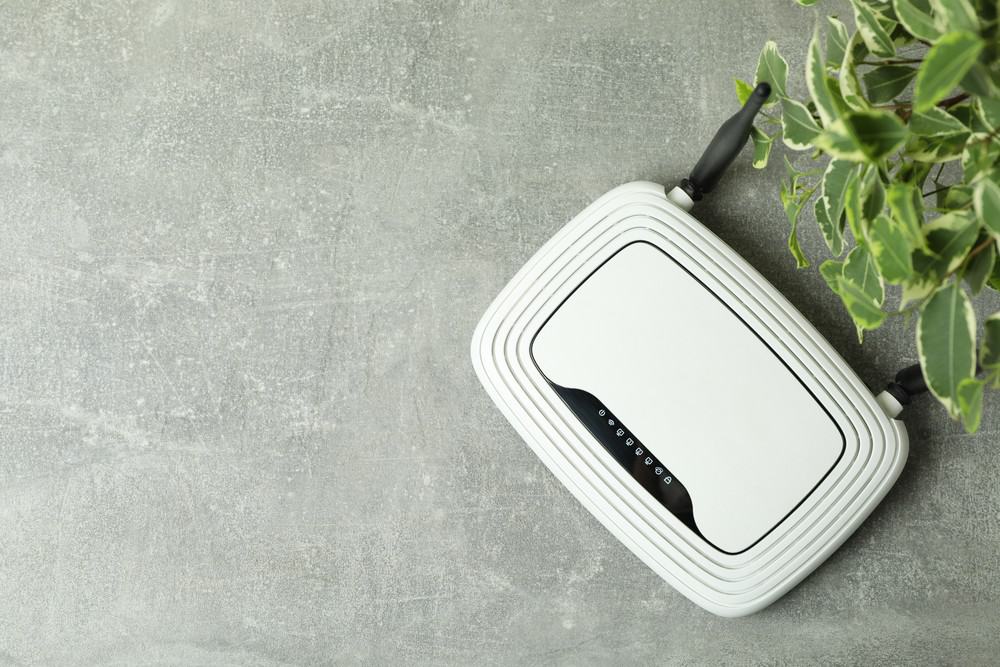
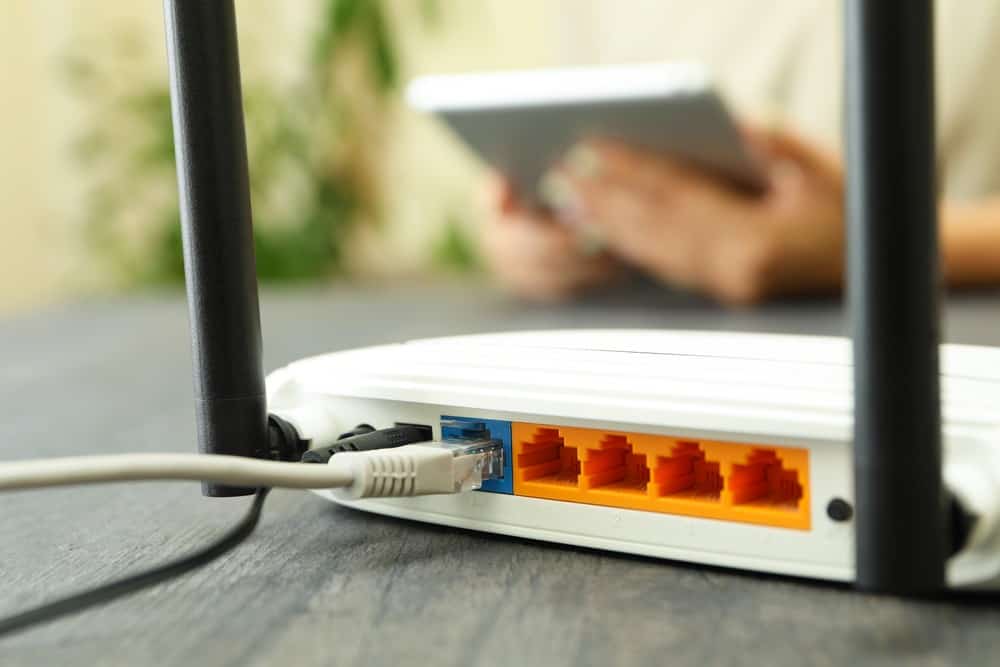
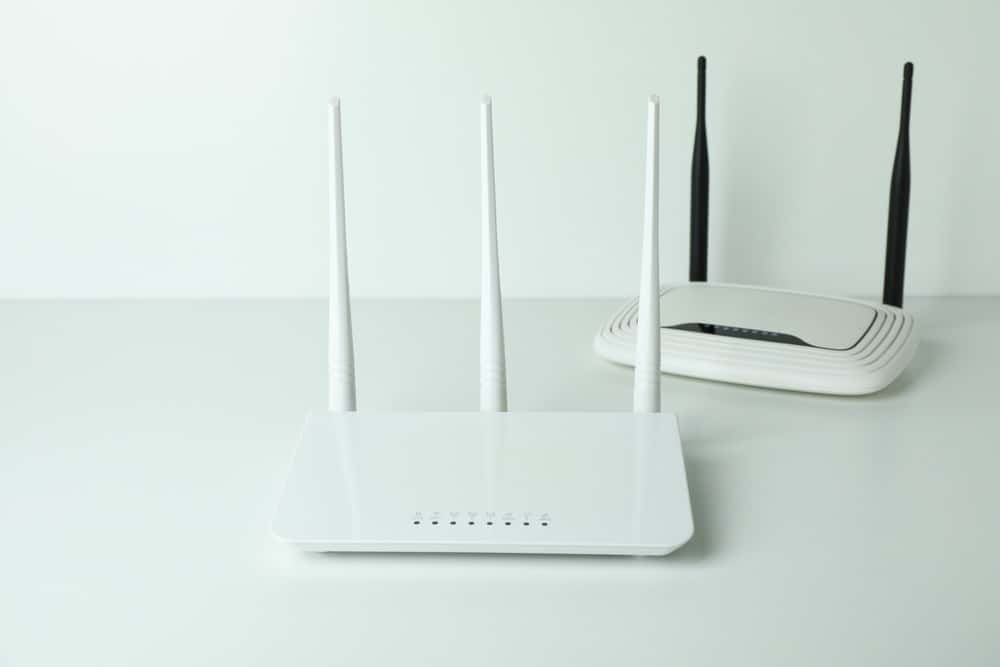





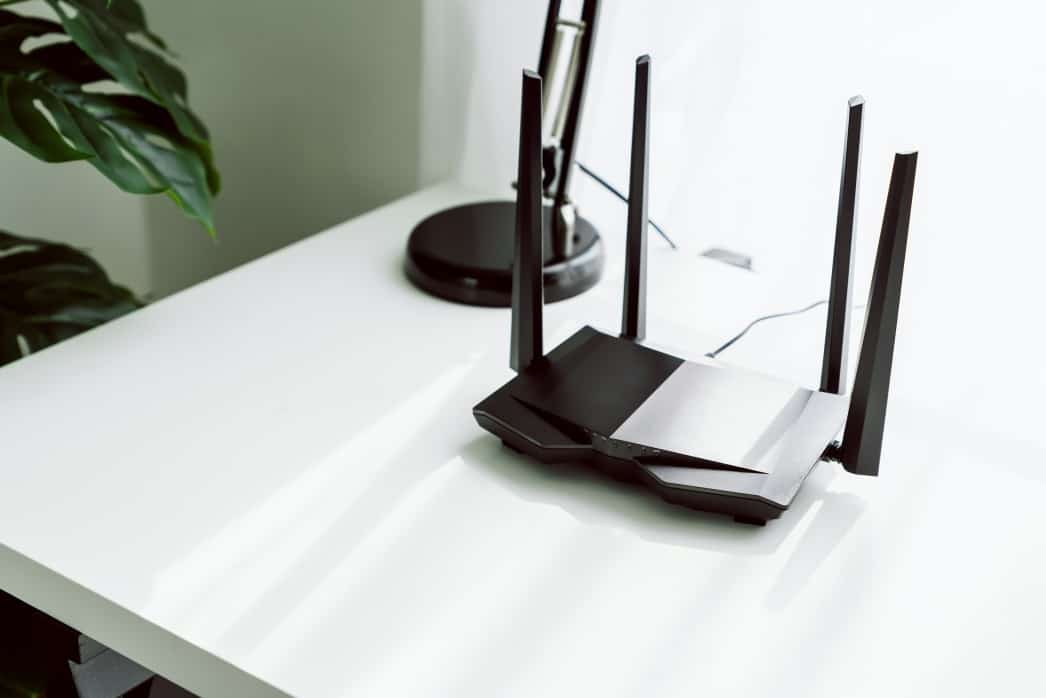
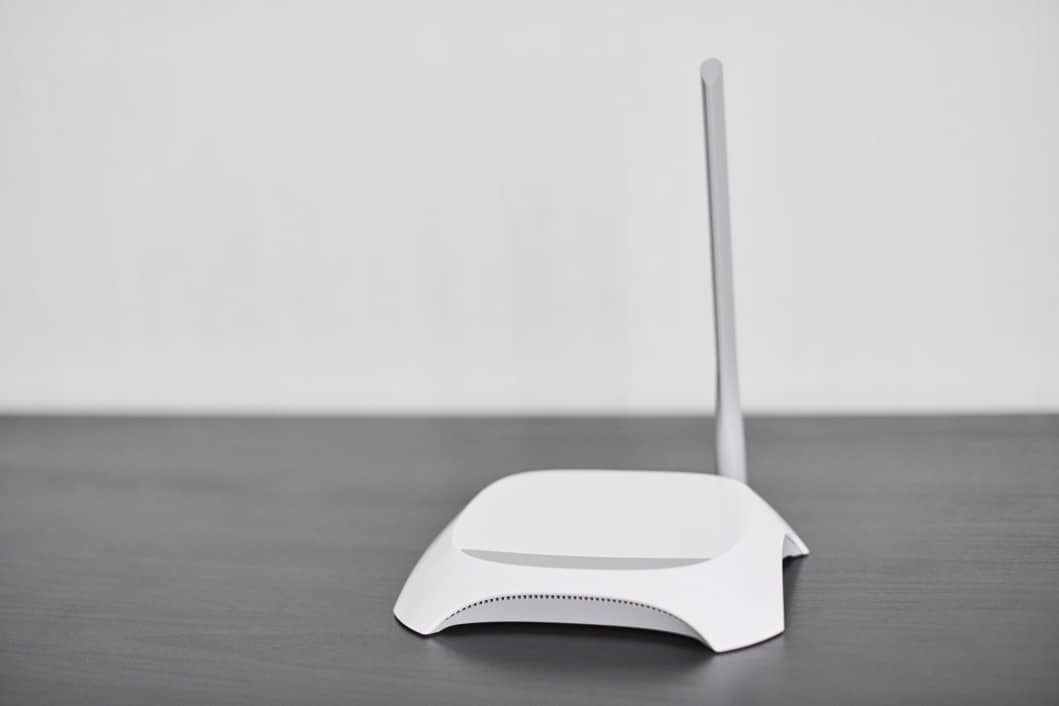



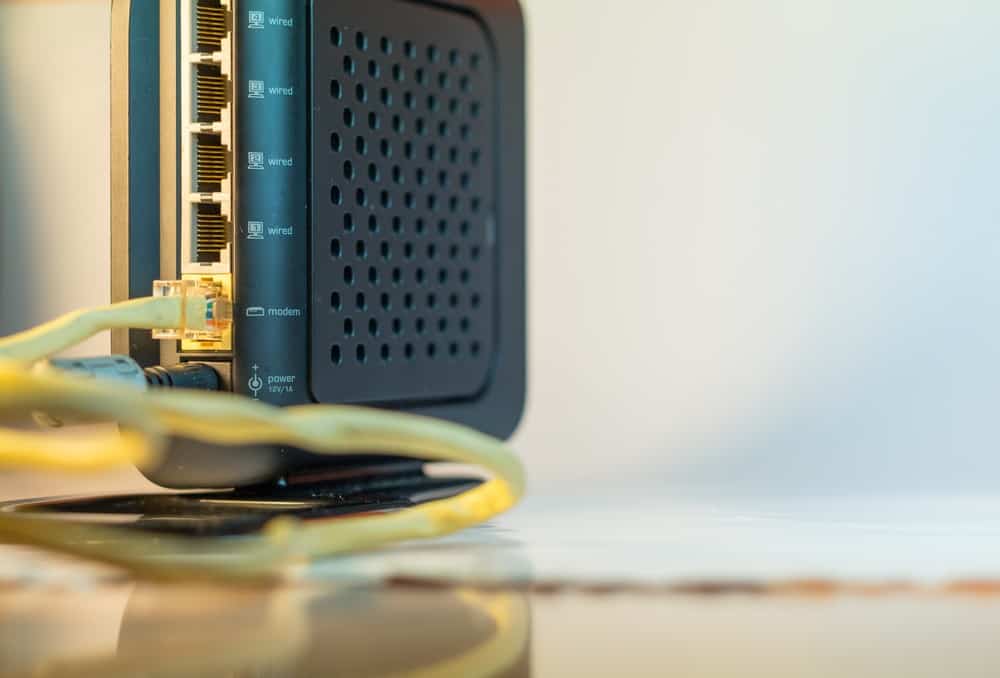

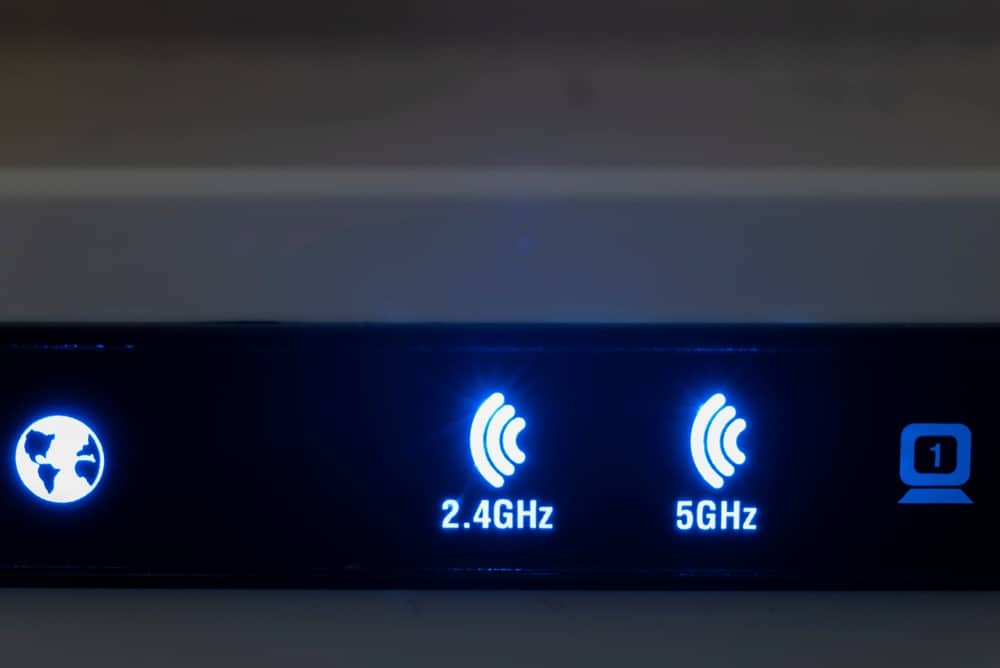

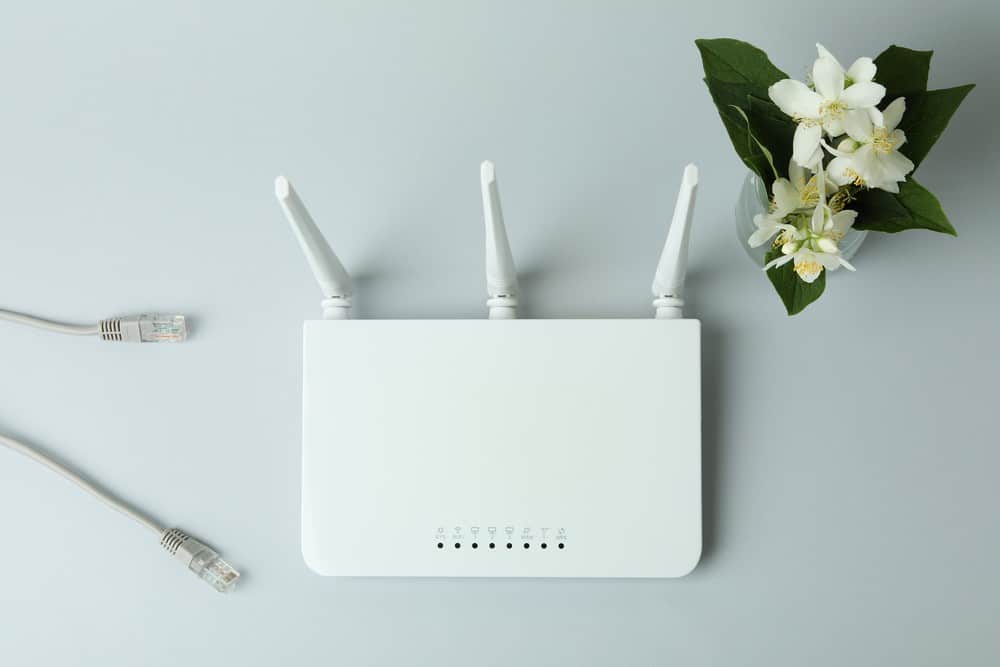
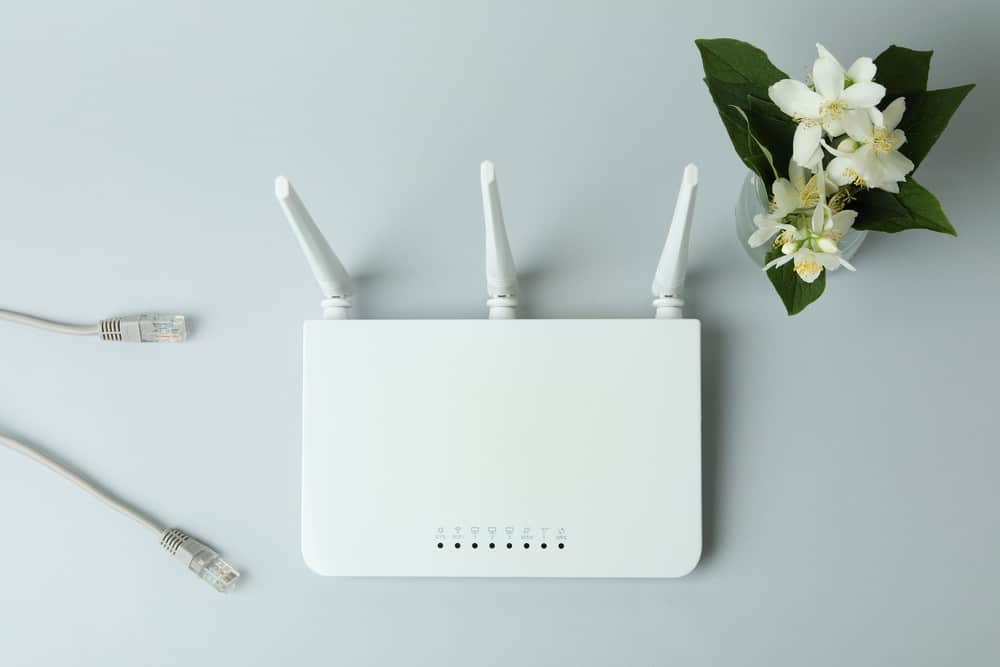

![Best BenQ Monitors in [year] 36 Best BenQ Monitors in 2026](https://www.gadgetreview.dev/wp-content/uploads/best-benq-monitor-image.jpg)
![Best Wifi Extenders For FiOS in [year] 37 Best Wifi Extenders For FiOS in 2026](https://www.gadgetreview.dev/wp-content/uploads/best-wifi-extender-for-fios-image.jpg)
![Best Fiber Optic Routers in [year] 38 Best Fiber Optic Routers in 2026](https://www.gadgetreview.dev/wp-content/uploads/best-fiber-optic-router-image.jpg)
![Best VoIP Routers in [year] 39 Best VoIP Routers in 2026](https://www.gadgetreview.dev/wp-content/uploads/best-voip-router-image.jpg)
![Best Routers for 200Mbps in [year] 40 Best Routers for 200Mbps in 2026](https://www.gadgetreview.dev/wp-content/uploads/best-router-for-200mbps-image.jpg)
![Best Routers for Optimum in [year] 41 Best Routers for Optimum in 2026](https://www.gadgetreview.dev/wp-content/uploads/best-router-for-optimum-image.jpg)
![Best Routers for Apple in [year] 42 Best Routers for Apple in 2026](https://www.gadgetreview.dev/wp-content/uploads/best-router-for-apple-image.jpg)
![Best Routers for Frontier FIOS in [year] 43 Best Routers for Frontier FIOS in 2026](https://www.gadgetreview.dev/wp-content/uploads/best-router-for-frontier-fios-image.jpg)
![Best Secure Routers in [year] 44 Best Secure Routers in 2026](https://www.gadgetreview.dev/wp-content/uploads/best-secure-router-image.jpg)
![Best Routers for Google Fiber in [year] 45 Best Routers for Google Fiber in 2026](https://www.gadgetreview.dev/wp-content/uploads/best-router-for-google-fiber-image.jpg)
![Best Routers for Cox in [year] 46 Best Routers for Cox in 2026](https://www.gadgetreview.dev/wp-content/uploads/best-router-for-cox-image.jpg)
![Best Asus Routers in [year] 47 Best Asus Routers in 2026](https://www.gadgetreview.dev/wp-content/uploads/best-asus-routers-image.jpg)
![Best Linksys Routers in [year] 48 Best Linksys Routers in 2026](https://www.gadgetreview.dev/wp-content/uploads/best-linksys-routers-image.jpg)
![Best Routers for CenturyLink in [year] 49 Best Routers for CenturyLink in 2026](https://www.gadgetreview.dev/wp-content/uploads/best-router-for-centurylink-image.jpg)
![Best WiFi Routers for Multiple Devices in [year] 50 Best WiFi Routers for Multiple Devices in 2026](https://www.gadgetreview.dev/wp-content/uploads/best-wifi-router-for-multiple-devices-image.jpg)
![Best Wired Routers in [year] 51 Best Wired Routers in 2026](https://www.gadgetreview.dev/wp-content/uploads/best-wired-router-image.jpg)
![Best Routers for 4K Streaming in [year] 52 Best Routers for 4K Streaming in 2026](https://www.gadgetreview.dev/wp-content/uploads/best-router-for-4k-streaming-image.jpg)
![Best Cisco Routers in [year] 53 Best Cisco Routers in 2026](https://www.gadgetreview.dev/wp-content/uploads/best-cisco-routers-image.jpg)
![Best eero Routers in [year] 54 Best eero Routers in 2026](https://www.gadgetreview.dev/wp-content/uploads/best-eero-routers-image.jpg)


